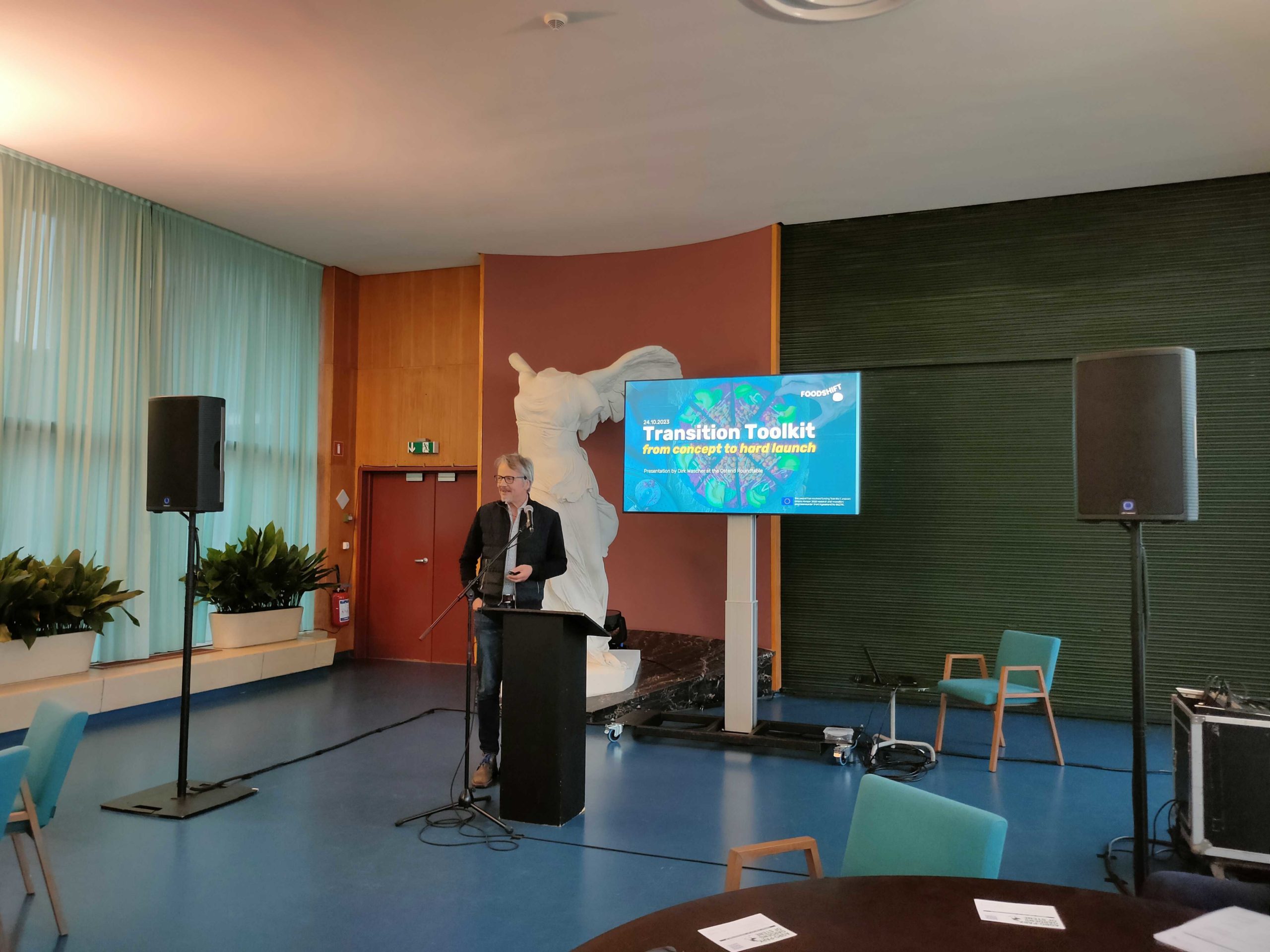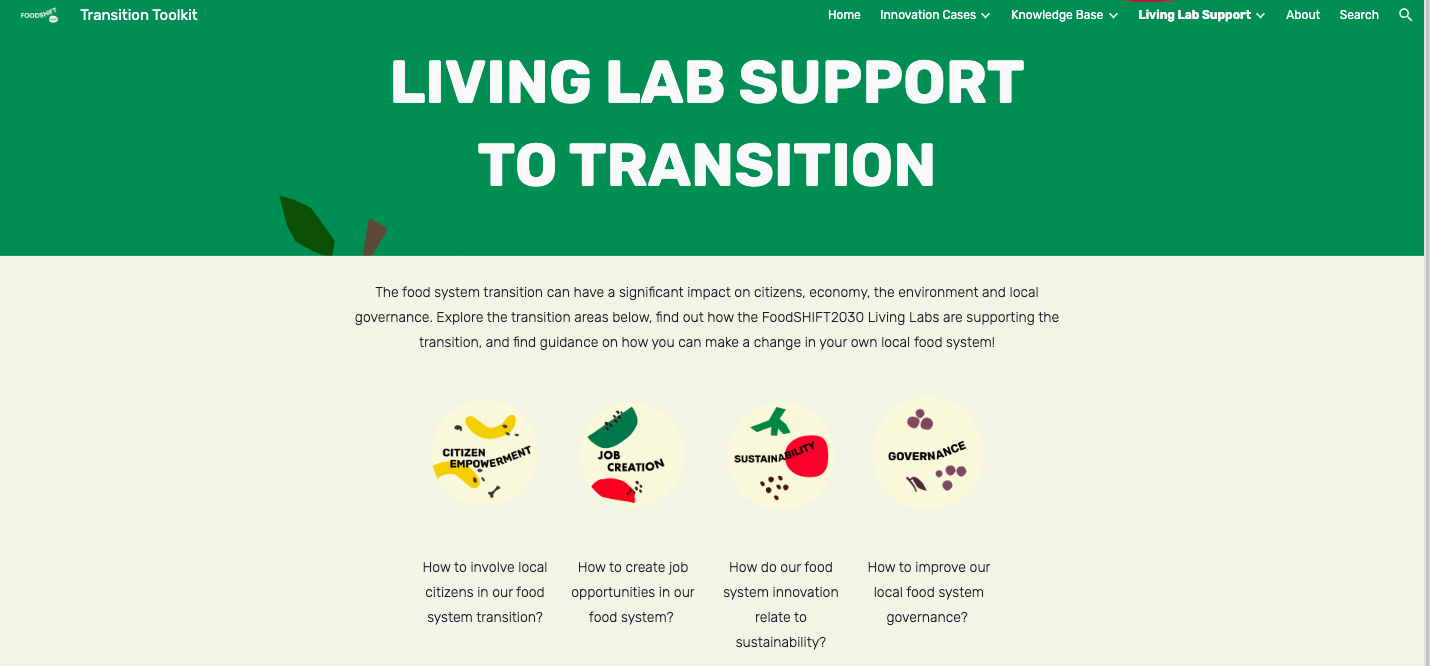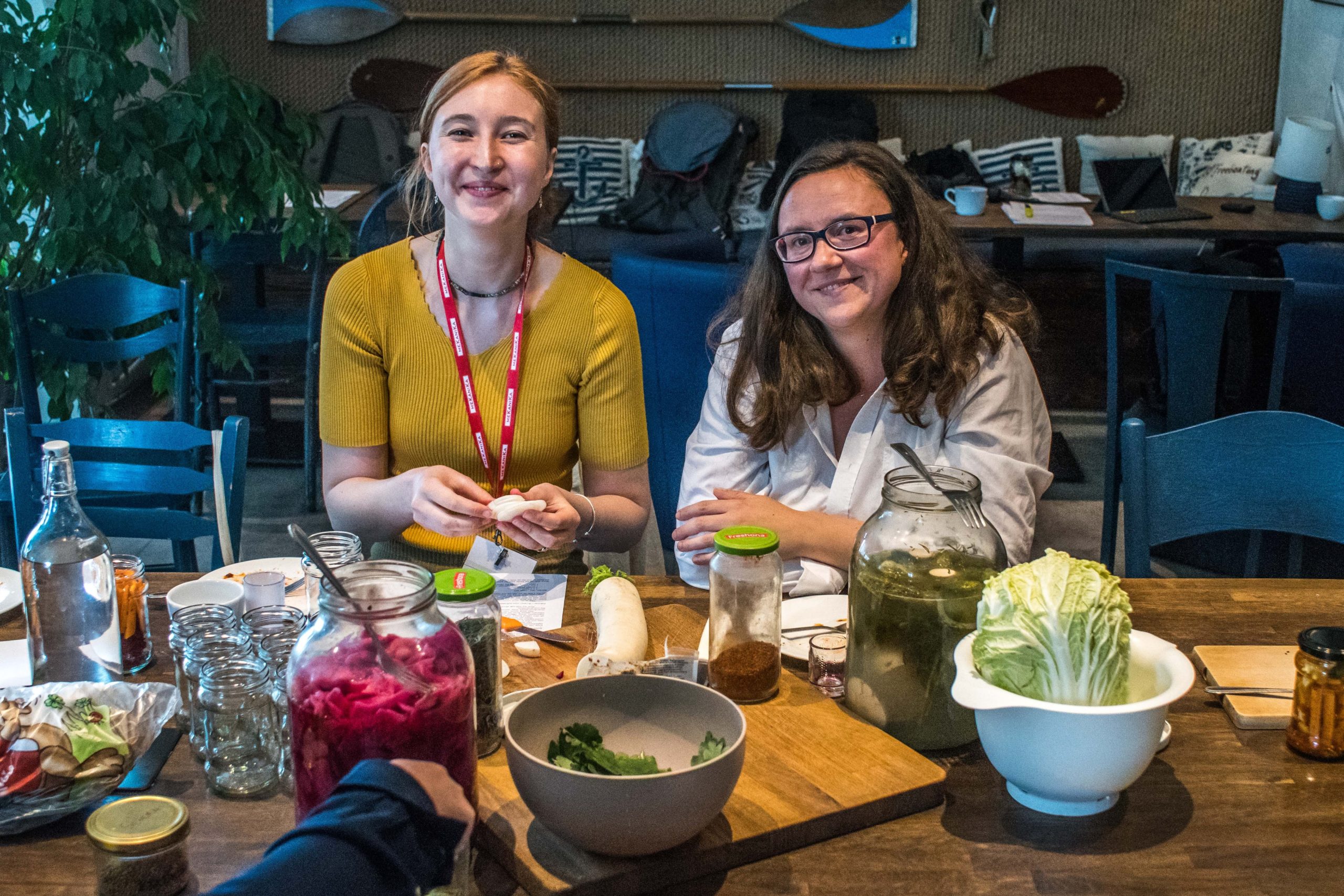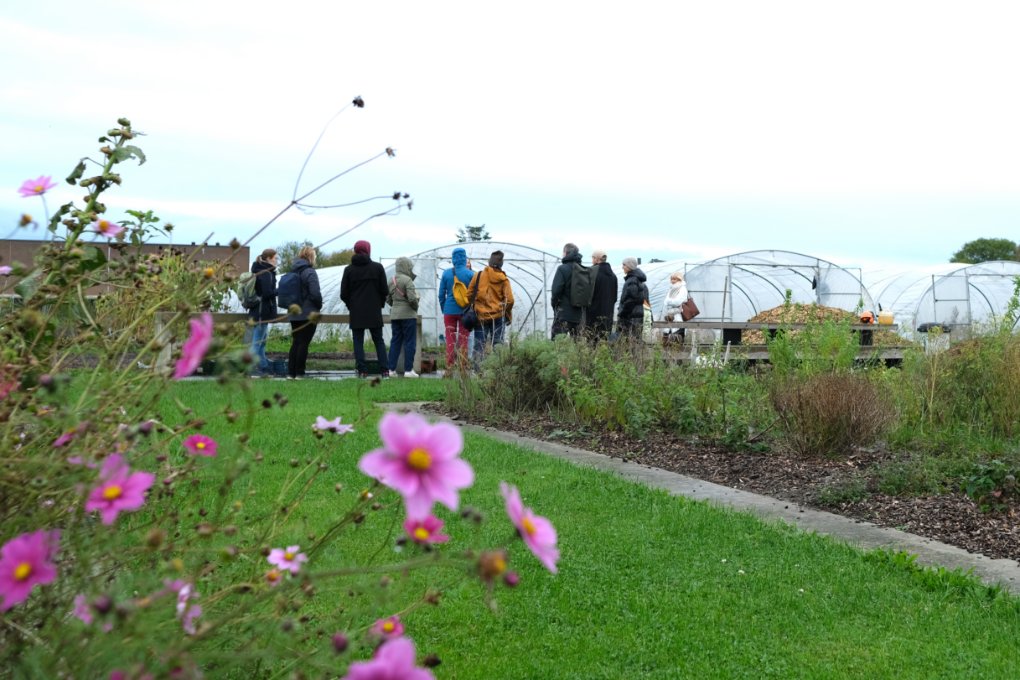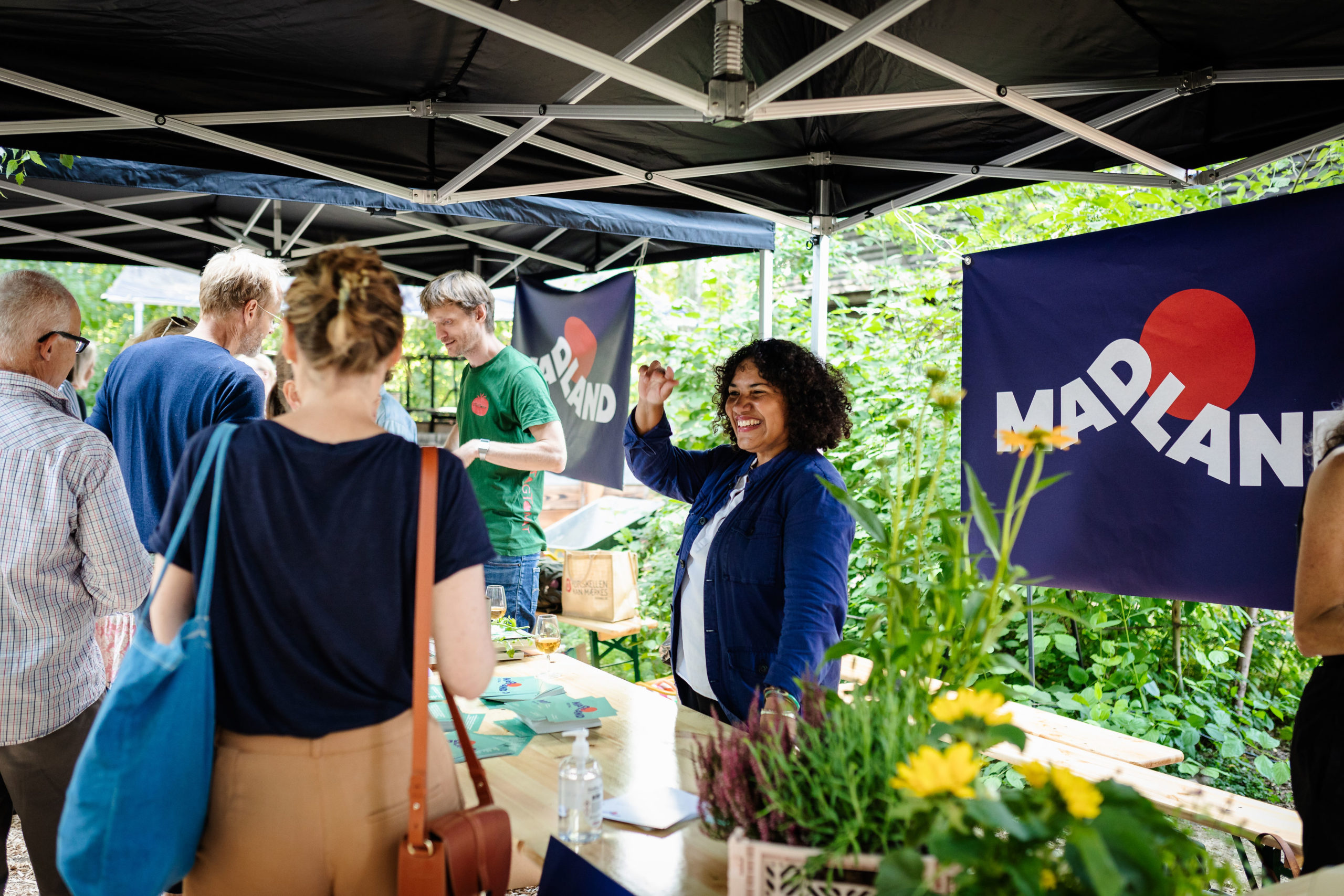Berlin’s story: Food Hub Lab
13 December 2023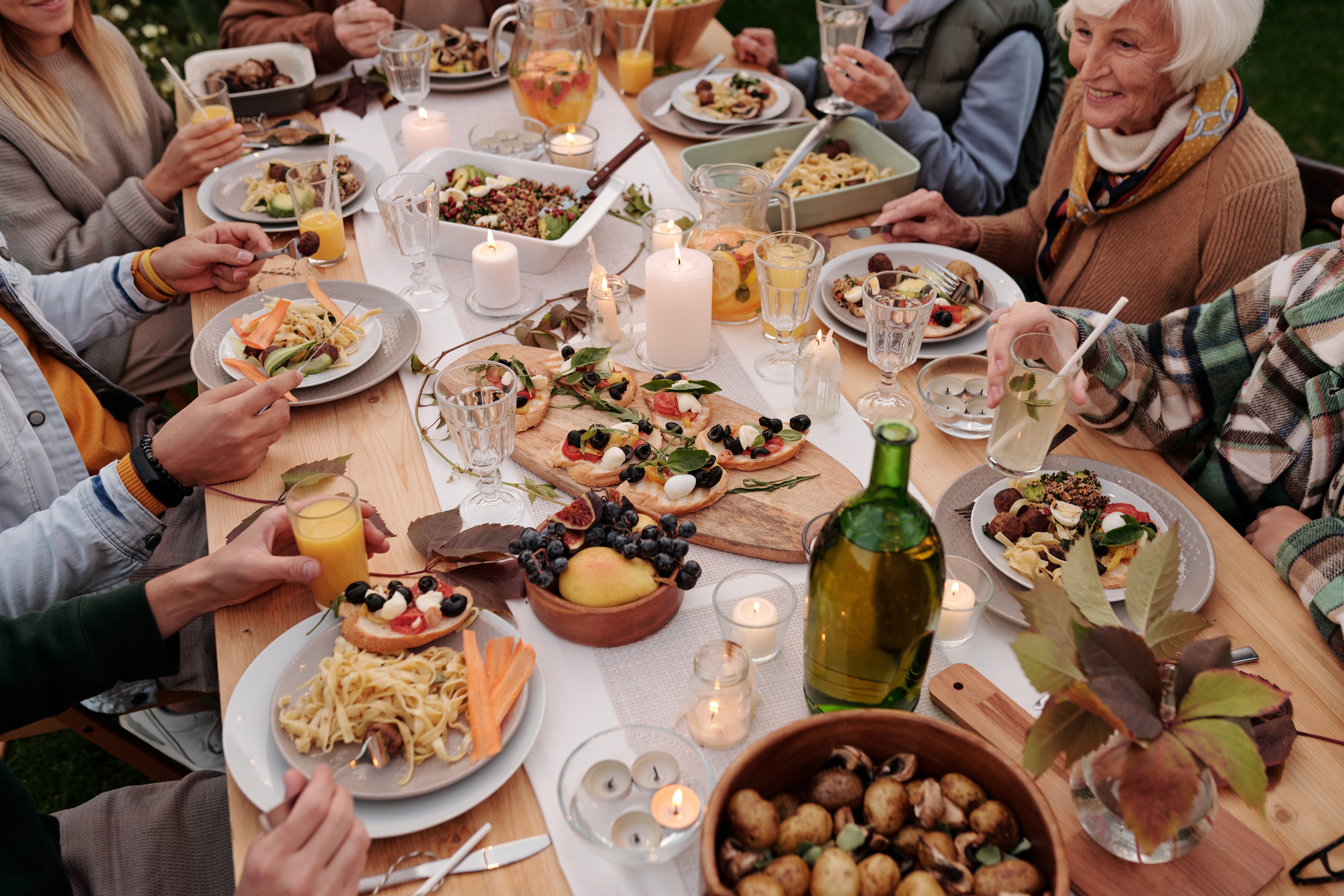
Photo credits: Askar Abayev
Four years ago nine city-regions took on the challenge to establish FoodSHIFT Accelerator Labs. In this final blogpost, the Berlin Lab reflects on the journey and development made during the whole project, through an interview to the Bari Lab coordinators. Explore the Transition Toolkit to to learn more about the other Lab’s experiences, Berlin’s city’s reports on innovation and governance and more.
Key takeaways
- The focus of the Berlin FAL was to accelerate citizen-led change in the food system by establishing a prototype Urban Food Hub (LebensMittelPunkt) to provide a space for co-learning and experimentation.
- They chose this focus because they noticed a need for the fostering of networks and collaboration among citizens and active food groups, to move the topic of food forward in a more coherent way.
- Although they faced several challenges, they achieved a lot! They managed to create more opportunities for people to meet, connect, build trust and network. As for the successes on a political level, food hubs are now in the Berlin municipal coalition agreement and the FoodSHIFT project has laid the foundations for further funding to scale up from 3 initiatives in 2020 to 27 urban food hubs in 2023.
- For a city looking to embark on a similar journey, the recommendation is to take a grounded, empathetic approach to supporting citizens and listening to their needs, while engaging administrations to support food transformation at all levels.
Interview with the Berlin Lab coordinators
What was your city’s specific focus in your food system transition and how did you initially start working with this focus area in your city?
Karen Wohlert
We wanted to accelerate citizen-led change in the food system. Our main lever was the idea of urban food hubs, called LebensMittelPunkte in German. And I think at the beginning we didn’t have a very clear vision of what would come out of it. But it was about starting a process and a living lab, to see what we could achieve, what worked and what didn’t, and to learn and collaborate toward trying to move things forward.
Lisa Haarhoff
We, as the civic food policy council, had planned to accompany the Berlin food hubs politically at various levels. However, due to the structure of the various initiatives, this initially remained at the Senate municipal level. It made no sense to accompany the food hubs at the smaller district level. So we concentrated on the Senate municipal level, and because of the elections, the Food Policy Council got involved in informing different politicians about food hubs and about food policy as a cross-cutting issue. This has been our main focus at different events organised by the Food Policy Council, that food policy is a cross-cutting issue for politicians and at the administrative level.
What were some obstacles or challenges you faced in your food system transition and how did you overcome them (or are planning on overcoming them)?
Lisa Haarhoff
What’s really missing is a network that works on the food strategy at a political level. What is our vision, what do we want to achieve and what do we want to communicate to politicians? We’re all in our projects and working like little bees and that’s fine. But there is little interest or capacity to work on a political level. We also don’t have a deep understanding of the political progress. For example, we don’t have a network where the Secretary of State or somebody else informs us about policy issues like regional value chains. But it would really help to start a discussion about what we can do and what is missing and what can we contribute?
Karen Wohlert
When I think about things from the normal citizen’s perspective, like the people who are interested in food change and who want to contribute to citizen-led food initiatives and so on, they do not know that there is a municipal food strategy. They’ve sometimes heard of the Berlin Food Policy Council, but they don’t know what the food strategy is. They are more focused on the grassroots level.
Lisa Haarhoff
My thesis is that the interest in the Berlin food strategy at the level of the citizens is very, very low. But at least now they are starting to think about it and it is slowly becoming a matter of interest. I think we really need a lot of projects in Berlin to change attitudes. But that’s not so realistic. And at the level of civil society, at the level of other NGOs, food policy and food strategy are becoming more and more important, and they have included it in their own agendas in the last two or three years.
Beatrice Walthall
Yeah, I share a similar view. As Karen and Lisa have said, there is not a lot of awareness in general. Many people are unaware of what is going on. But in a participatory mapping activity that we did in a neighbourhood four weeks ago, we also had a lot of conversations with people who had no idea about the food strategy development process. But we had leaflets about the Food Policy Council and about the food strategy. And when you started to talk to them about it, they seemed to be interested in finding out more about it. It’s not that they wanted to ignore it. But it’s more about lacking awareness or not knowing than not caring, I would say.
Lisa Haarhoff
Yes. To most people it is a private matter. Food is a private matter and not something political.
Karen Wohlert
I mean, from our side, the answer is that with the LMP network it’s also about getting enough funding to organise and give enough opportunities and support to citizens who want to act. So funding for the support structure. Then, another aspect is really also about a story and a shared vision of changing the food system in the city and the region. So, more communication about that, more of a vision, more clarity. That would be helpful. A common narrative and goals more widely communicated and agreed upon.
If you look back on the last four years, what would you say were your biggest achievements or impacts that you achieved during the project?
Karen Wohlert
I think at the heart of it, it’s all about personal connections. We have created more opportunities for people to meet, to connect. And also, how we work at Baumhaus, having these very informal, very personal conversations. I think it builds up trust and networks and makes them stronger. We are an acceleration of things or a catalyst of the ecosystem. It’s still a soup, but we’ve contributed to it and it’s getting better and it’s going to evolve beyond FoodSHIFT. So, a lot of things or results will only come out in the next few years. Things we have supported and initiated.
Lisa Haarhoff
And I think the political success is that the food hubs were put into the Berlin municipal coalition agreement. In the previous government, it wasn’t just the Berlin Food Policy Council. It was also the direct communication between Karen and the Senate administration that made things happen. And the fact that we have worked together at this point in time, that we have formulated a wish or a demand, that now we are stronger together. This is also one of the successes of FoodSHIFT. Because if I hadn’t been there and said that this is an important demand that we, the Berlin Food Policy Council, must integrate and streamline our demands to the Senate administration, it wouldn’t have happened. I think it was a success.
Karen Wohlert
I really think that FoodSHIFT came into the Berlin ecosystem at the right time. I think it was a good combination, and it got things started. And I don’t think we would have managed to get the major additional funding for the food hub network which allowed us to scale from 3 initiatives in 2020 to 27 in 2023, and still growing, if we hadn’t been able to say: “Hey, this is part of an EU innovation process, we have ZALF, a well-known institute, as a local partner, and we have an impact assessment where science actually says that this is good, this is new, this is needed.” Also, FoodSHIFT gave us time. It was a three-and-a-half-year process for us. So, in that time, we could try things, develop things, we could rethink the structure of the food hub network in a kind of continuous evolution. Now we’re in a place where we know how to go on. But it really took some years to understand and to test and build and network.
What advice do you have for other cities who want to embark on a similar journey?
Karen Wohlert
Many things. But I would say it’s an opportunity to have this multi-year process of building something and learning from it. It’s about how to get citizens involved. We had the most success with very hands-on support. Like saying: “Hey, we’re a partner for you, change agents, or potential change agents. And we’re here to support you. What do you need?” It’s about being really open about what kind of support they need.
Lisa Haarhoff
I think the lessons we have learnt are, for example, that the involvement of the administration is a very effective way of supporting the transformation of the food system. But also that there is a lack of involvement in Berlin and that all administrations have to be part of the process. It is a very difficult job. But I think that food policy is really a cross-cutting issue in the city. It is more likely to show results if all the administrations are involved.
Contact details
Karen Wohlert, Lab Leader and coordinator of the Food Hub Network Berlin
Lisa Haarhoff, Lab Host and representative of the Berlin Food Policy Council
Beatrice Walthall, Lab Assistant and researcher at Leibniz Center for Agricultural Landscape Research (ZALF)
Check out previous blogposts and the documentary by the Berlin’s Lab:
How to cook up civic-driven food system governance? A step-by-step guide for practitioners
